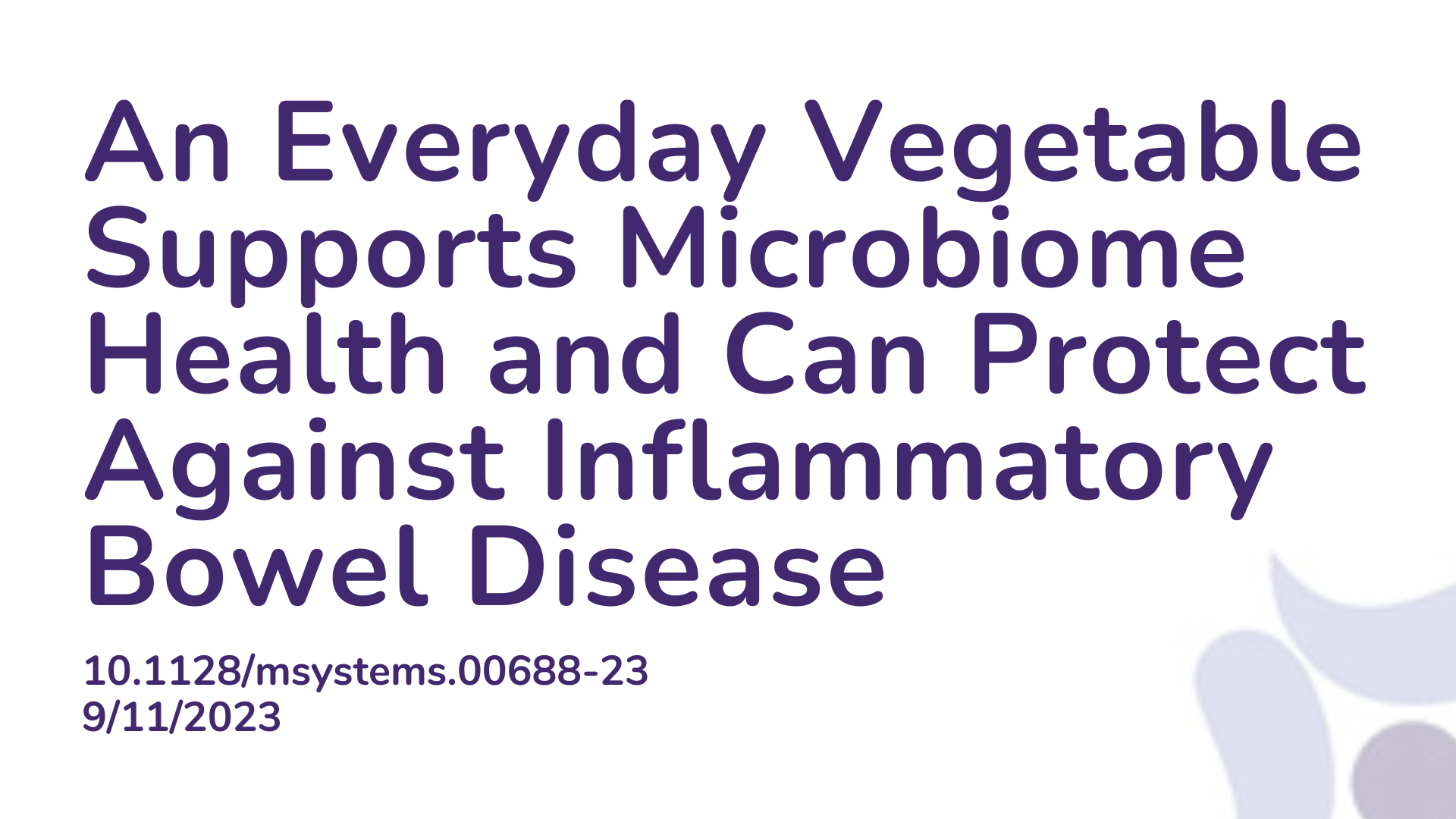Summary:
Inflammatory bowel diseases (IBD) such as Crohn’s disease (CD) impact over 6 million individuals globally. CD is an immune-related bowel disease and is currently addressed with treatments that suppress the immune response and mitigate inflammation. However, a considerable number of patients do not respond to medication. The role of diet is crucial in preventing and managing IBD, as well as further reducing inflammation. Nonetheless, knowledge gaps exist regarding how IBD is controlled by the gut microbiota and diet. In this study, mice were subjected to either a control diet or one containing raw broccoli sprouts, rich in the anti-inflammatory compound sulforaphane. The diets commenced seven days before and continued for two weeks after inoculation with Helicobacter hepaticus, a trigger for Crohn’s-like symptoms in immune-impaired mice. The raw broccoli sprout diet resulted in increased sulforaphane levels, a reduction in weight, fecal blood and diarrhea. Furthermore, the sprout diets enhanced microbiota function in the gut, by reducing the number of pathogenic bacteria associated with inflammation. Overall, the study showed that immune-compromised mice show responsiveness to a raw broccoli sprout diet, highlighting its potential for further research on the interactions among diet, the microbiome and IBD.
Abstract:
Crohn’s disease (CD) is a presentation of inflammatory bowel disease (IBD) that manifests in childhood and adolescence and involves chronic and severe enterocolitis, immune and gut microbial dysregulation, and other complications. Diet and gut-microbiota-produced metabolites are sources of anti-inflammatories that could ameliorate symptoms. However, questions remain on how IBD influences biogeographic patterns of microbial location and function in the gut, how early life transitional gut communities are affected by IBD and diet interventions, and how disruption to biogeography alters disease mediation by diet components or microbial metabolites. Many studies on diet and IBD use a chemically induced ulcerative colitis model, despite the availability of an immune-modulated CD model. Interleukin-10-knockout (IL-10-KO) mice on a C57BL/6 background, beginning at age 4 or 7 weeks, were fed a control diet or one containing 10% (wt/wt) raw broccoli sprouts, which was high in the sprout-sourced anti-inflammatory sulforaphane. Diets began 7 days prior to, and for 2 weeks after inoculation with Helicobacter hepaticus, which triggers Crohn’s-like symptoms in these immune-impaired mice. The broccoli sprout diet increased sulforaphane in plasma; decreased weight stagnation, fecal blood, and diarrhea associated; and increased microbiota richness in the gut, especially in younger mice. Sprout diets resulted in some anatomically specific bacteria in younger mice and reduced the prevalence and abundance of pathobiont bacteria which trigger inflammation in the IL-10-KO mouse, for example, Escherichia coli and Helicobacter. Overall, the IL-10-KO mouse model is responsive to a raw broccoli sprout diet and represents an opportunity for more diet-host-microbiome research.
Article Publication Date: 9/11/2023
DOI: 10.1128/msystems.00688-23



